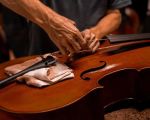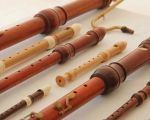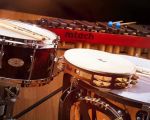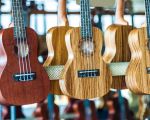- 1-Understanding-the-Impact-of-Donating-Used-Musical-Instruments
- 2-Top-Places-to-Donate-Used-Musical-Instruments
- 3-How-to-Prepare-Your-Instrument-for-Donation
- 4-Real-Stories-of-Musical-Instrument-Donations-Making-a-Difference
- 5-Where-to-Find-More-Resources-for-Donating-Musical-Instruments
1. Understanding the Impact of Donating Used Musical Instruments
Donating used musical instruments is a powerful way to keep music alive and accessible for communities in need. Many aspiring musicians face financial barriers when trying to obtain quality instruments, and donations can provide a vital bridge to learning and growth. Knowing where to donate used musical instruments allows you to contribute positively and ensure your instruments find a meaningful new life.
The value of donated instruments goes beyond monetary worth; it enriches cultural education and inspires creativity. By passing on your gently used guitar, violin, or wind instrument, you help nurture future talents who might otherwise never get a chance to explore music.
1.1 Environmental and Social Benefits
Giving away unused instruments also promotes sustainability by reducing waste. Instead of gathering dust in storage, these instruments continue to serve a purpose, fostering community and supporting music programs in schools or local organizations.
2. Top Places to Donate Used Musical Instruments
If you’re wondering where to donate used musical instruments, several options stand out for their reach and impact.
2.1 Schools and Music Education Programs
Many schools, especially those in underfunded districts, welcome instrument donations. These donations directly support music classes and student ensembles, helping children gain access to quality instruments.
2.2 Nonprofit Organizations
Organizations dedicated to music education and community outreach often run donation programs. Groups like “Instruments of Change” or local music charities refurbish and distribute instruments to those in need.
2.3 Community Centers and Youth Programs
Local community centers, youth clubs, and cultural groups sometimes accept instrument donations to enhance their music offerings and workshops.
3. How to Prepare Your Instrument for Donation
Before donating, it’s important to ensure your instrument is in good condition to maximize its usefulness.
3.1 Clean and Tune the Instrument
A clean, well-tuned instrument is more appealing and easier for recipients to use immediately.
3.2 Include Accessories if Possible
If you have extra strings, mouthpieces, or cases, including them can make a big difference for the new owner.
3.3 Provide Information About the Instrument
Notes about the brand, age, and any needed repairs help recipients understand what they’re receiving.
4. Real Stories of Musical Instrument Donations Making a Difference
Take the story of a local nonprofit that received a large donation of used instruments from a retired music teacher. These instruments were refurbished and distributed to schools in low-income neighborhoods, enabling hundreds of children to join bands and orchestras for the first time. The joy and confidence these kids gained were invaluable.
Such real-world examples highlight the profound impact that knowing where to donate used musical instruments can have on communities and individuals alike.
4.1 Transformative Experiences for Young Musicians
Many recipients have shared how receiving a donated instrument sparked their passion for music and opened doors to scholarships and career paths.
5. Where to Find More Resources for Donating Musical Instruments
For those looking to donate or find refurbished instruments, Beat Trigger offers an excellent platform to explore options and connect with trusted programs. Whether you want to give away or acquire used instruments, Beat Trigger provides comprehensive listings and advice tailored to musicians and donors alike.
Utilizing such specialized resources ensures your donation goes to the right place, maximizing both impact and convenience.








